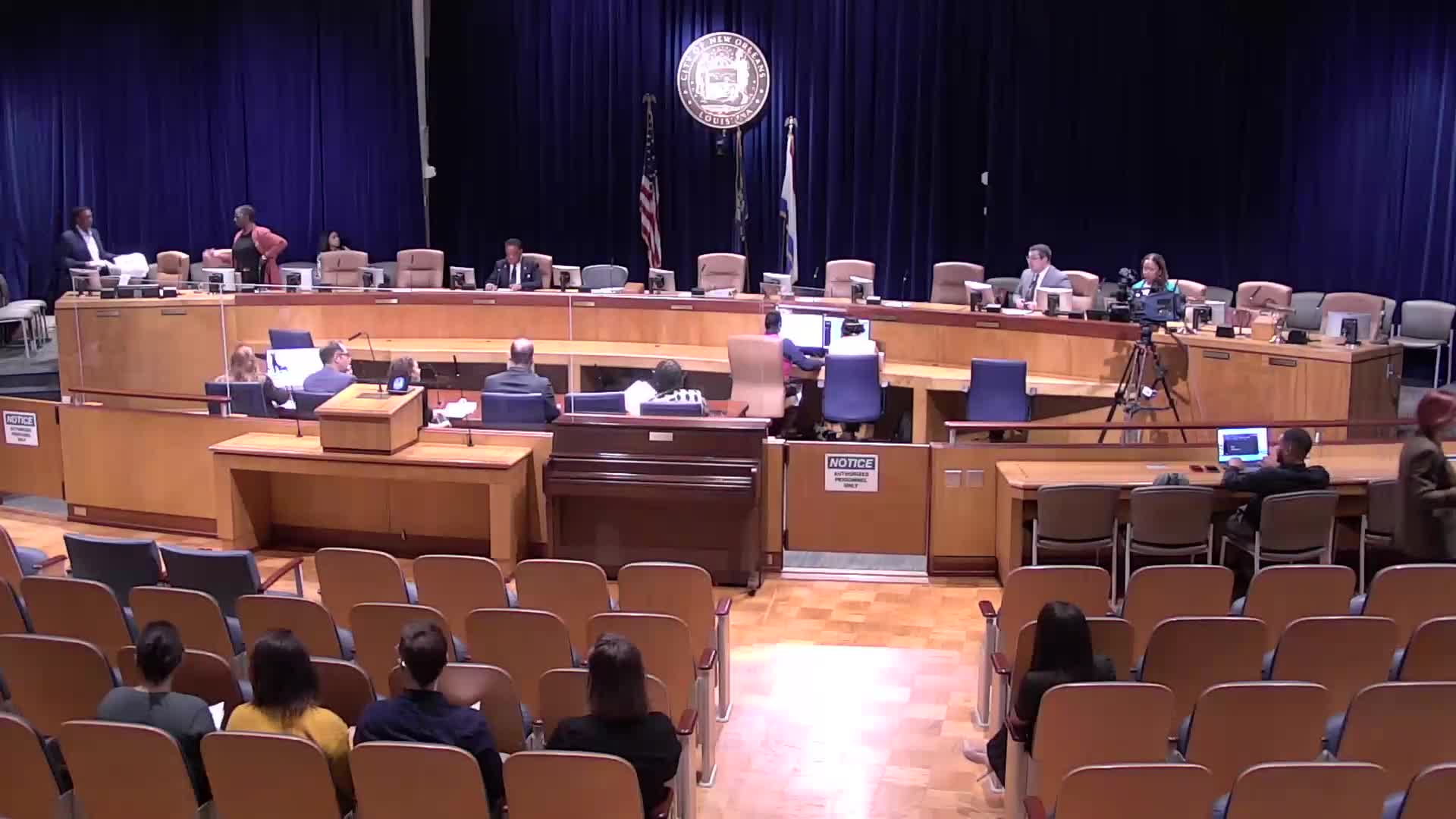New Orleans public defenders warn proposed $3M-plus cut would harm client services amid rising caseload
Get AI-powered insights, summaries, and transcripts
Subscribe
Summary
Public Defender Office presenters told City Council that a proposed reduction of more than $3 million would force unfilled positions and jeopardize services as caseloads increase because of Troop NOLA arrests and other system changes.
Representatives of the Orleans Parish Public Defender’s Office told the New Orleans City Council on Wednesday that a proposed reduction of more than $3 million to their 2026 budget would force vital positions to remain vacant and harm core client services.
OPD representatives said the office represented more than 19,000 cases in fiscal 2025 across criminal district, municipal, traffic and juvenile courts and is seeing a surge of new cases tied in part to arrests by Louisiana State Police Troop NOLA and additional prosecutions by the state attorney general. "We must balance and adapt to the ever changing needs of our clients, community, and for the cases that come to us through arrests in the criminal system," OPD presenters said during the budget hearing.
Why it matters: OPD staff said cutting their budget would not only reduce defense capacity but would increase costs to the city by lengthening pretrial detention and worsening health and social outcomes for people who intersect with the criminal legal system.
Barksdale Hortenstein, director of OPD’s mental health unit, described the office’s alternatives-to-incarceration work and partnerships that connect clients to treatment and support rather than jail. "You cannot treat cancer by punishing it. Similarly, you cannot treat mental illness by punishing the people who are exhibiting those symptoms," Hortenstein said, arguing for expanded crisis and diversion services instead of incarceration.
Council members pressed OPD officials on details. Council Member Harris asked specifically about Troop NOLA’s impact; OPD representatives said many Troop NOLA arrests involve mid- to lower-level felonies linked to pedestrian and traffic stops, which has strained teams that handle that caseload. OPD noted it receives district assistance funding from the state through a district assistance formula and said the office has also worked with the state to secure federal grant dollars passed through state partners, but that current state funding has remained steady rather than increasing to match recent workload growth.
Council Member King emphasized the downstream cost of detention during his remarks, citing a commonly used local figure: "it's about a $130 per day to keep somebody in jail for about 50 days. That's relative to $7,500," he said, and warned that longer jail stays raise the risk that people lose employment and family stability.
OPD presenters described core services that would be affected by cuts: immediate post-arrest advocacy, client case management, mental-health specialized representation, and a client services division that reported more than 1,300 of the most vulnerable client contacts this year. They offered examples of individual clients who avoided lengthy incarceration through coordinated release plans and treatment referrals that included shelter, medical care and probation supports.
OPD also asked the council to reconsider a planned reduction percentage and said the office cannot absorb the proposed cut without harming direct representation. The presenters framed their request as protecting constitutional and ethical duties: "When we fail to meet our constitutional duties and our ethical and professional guidelines, the entire system falters and our community suffers," an OPD representative said.
What was not decided: The hearing recorded no formal votes or motions on OPD funding during the session. Council members and OPD staff continued to ask and answer questions about specific costs, caseload drivers and alternative funding avenues.
Next steps: OPD said it is available to provide further budget detail and to work with the council and other criminal justice agencies to reduce the jail population and to pursue cost-saving alternatives to incarceration.
